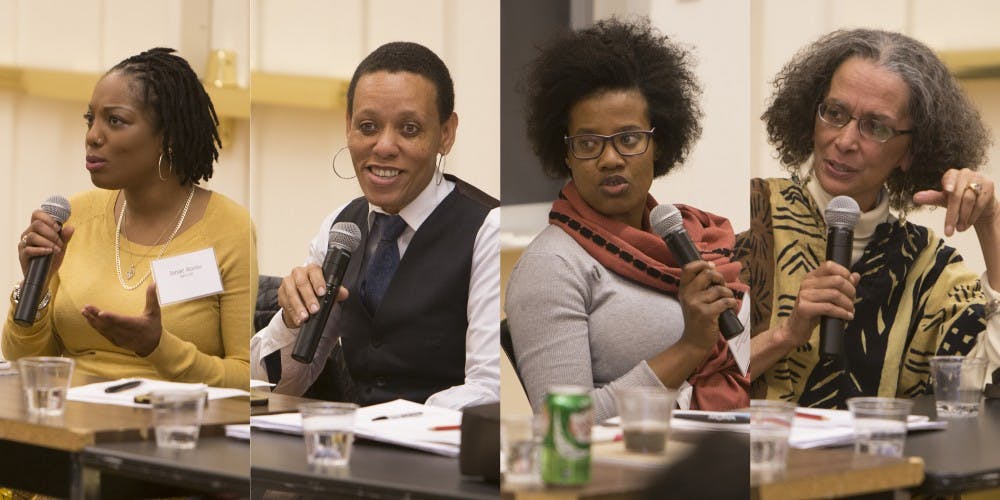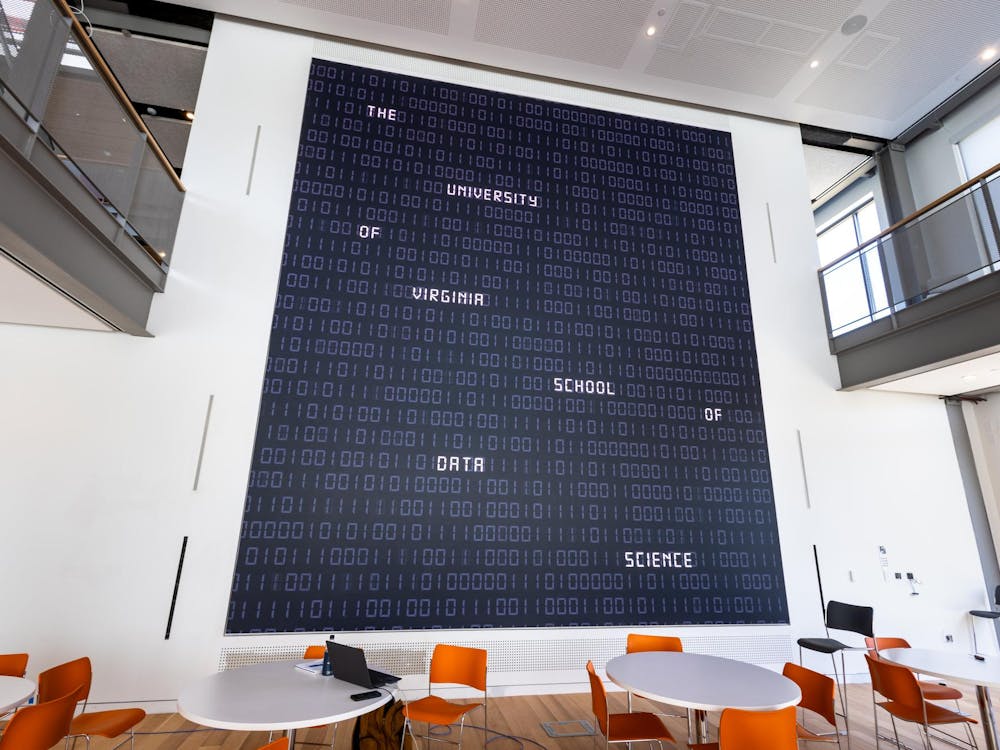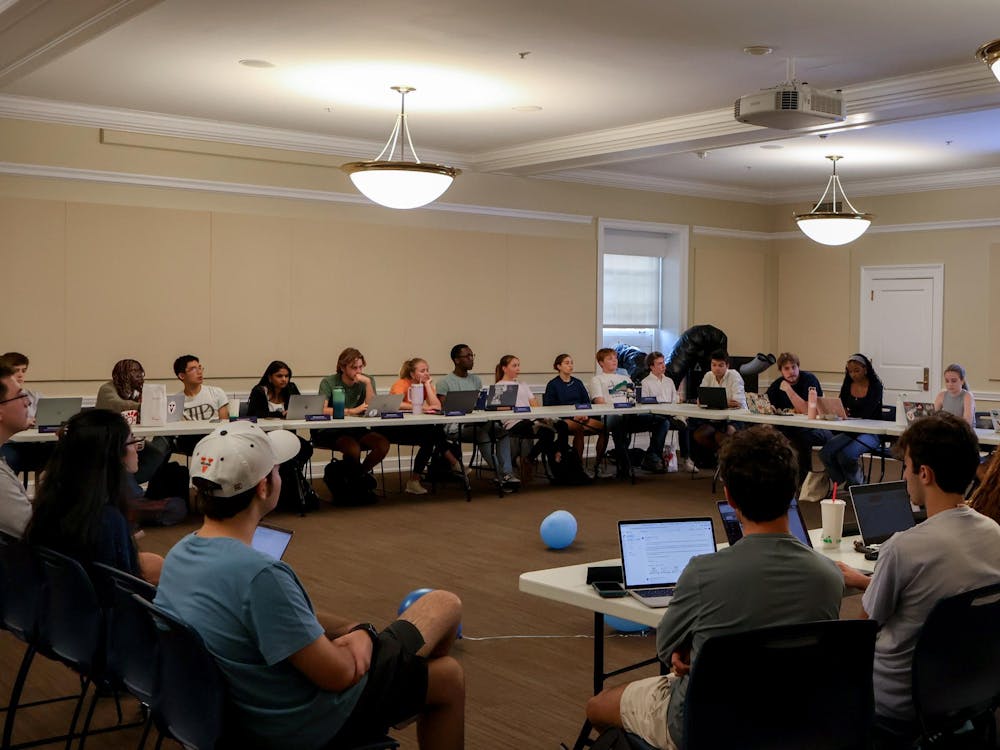The first-ever Global Black Girlhood Conference, in which speakers from across the country and the world gathered to discuss topics ranging from black girlhood identity to criminalization, was held Friday and Saturday at the University.
The event was co-organized by Corinne Field, an assistant professor of Women, Gender and Sexuality at the University, and Lakisha Simmons, a University alumna and assistant professor of women’s studies at the University of Michigan.
In an email to The Cavalier Daily, Field said the idea for the conference stemmed from the History of Black Girlhood Network, which is “an informal collaboration of scholars working on black girls’ history from the sixteenth century to the present in Africa, Europe and the Americas.”
“At a 2015 roundtable organized for the Society for the History of Children and Youth, Africanists and Americanists discussed whether the ‘black ‘part of ‘black girlhood’ meant the same thing across the globe and who counted as a ‘girl’ different contexts,” Field said. “Members of the network decided it was time for a dedicated conference to explore this question.”
As a result, the two-day conference consisted of six panels, lectures, a film screening and an undergraduate symposium, all of which discussed the various aspects of black girlhood.
“We gathered over 50 presenters including scholars, artists and activists to present research, creative work and organizational efforts centered on the experience of black girls,” Field said. “We created a space for an intergenerational conversation where elders, adults and young girls shared their wisdom and forged common concerns.”
Approximately 150 people were present for the keynote panel, which was held Friday night and focused on politics and how black girlhood has shaped experiences of prominent activists around the world.
“Over the past year, black schoolgirls and college students have engaged in protests across the globe — in South Africa, in the United States, in France and more,” Field said. “At the same time, scholars and artists have also noted black girls’ artistic creativity and ingenuity; the ways in which black girls find the time to seek pleasure and love in the face of a violent world.”
Field and Simmons said they felt this topic was an important conversation for undergraduates to be a part of and felt the panel was the best way to accomplish this goal.
The panel consisted of four black activists — Janaé Bonsu, the national public policy chair of BYP100, Beverley Ditsie, a South African filmmaker and co-founder of the Gay and Lesbian Organization of the Witwatersrand, Denise Oliver-Velez, former member of the Young Lords Party and Black Panther party and Phindile Kunene, a curriculum developer at the Tshisimani Center for Activist Education in South Africa.
Assoc. History Prof. Claudrena Harold moderated the panel.
The panelists began by discussing how politicization intersected with their experiences as a black girl, which differed among the panelists. For example, Oliver-Velez said she grew up in a “very political family.”
“I was political from the time I dropped out of my mother’s womb,” Oliver-Velez said. “My grandfather called himself a ‘race man.’ It’s like Paul Robeson comes and sings you ‘Happy Birthday’ for your sixth birthday. I didn’t know there was a world that wasn’t political. I didn’t know there were people that weren’t political.”
For some of the panelists, being identified as a girl was not something that was at the forefront of their minds as a child.
“I was never aware that I was a girl for probably until my early teens,” Ditsie said. “But, having said that, I was constantly being made aware I was girl by the uncles and neighbors who were trying to touch and do more than touch.”
Bonsu also did not fully recognize girlhood until she began puberty at the age of nine. At that point, she said she was not seen as a person, but as body parts. Bonsu also recalled how others attempted to define her “blackness,” especially when she started attending a predominantly white school in a different neighborhood.
“When I went home, I wasn’t black enough for my neighborhood friends,” Bonsu said. “From nine to four, I’m in this white world and when I went home I was told, ‘oh, you’re just a white girl in a black girl body.’ I am literally African-American and you’re telling me I’m not black enough — what does that mean?”
In addition to black girlhood, the panelists discussed their roles in activism and the importance of organization when engaging in political activism.
“Organizations are important because they’re containers for political education, for leadership development, for bringing other people into the movement,” Bonsu said. “You have a rally and people go home without any action items. Organizations help keep the momentum going. There’s a difference between mobilizing and organizing.”
Oliver-Velez said she agreed, stating that activism through organization is what helps to really effect change.
“You have to have multiple approaches, but permanent change in this country usually occurs through judicial and legislative action,” Oliver-Velez said. “We have to be very, very careful and very, very organized.”
Overall, Field said she thought the conference was successful, and they are currently devising plans to host it again in the future.
“Participants formed lasting connections that will sustain ongoing work and create new knowledge,” Field said. “We also hope that this conference will inspire administrators, faculty and students at U.Va. to continue existing research projects on black women and girls and to direct even more resources towards scholarship at the intersections of race, age and gender.”







